Maryland Teens Overdose on Prescription Drugs at School
Category: News Tags: , prescription drug overdose
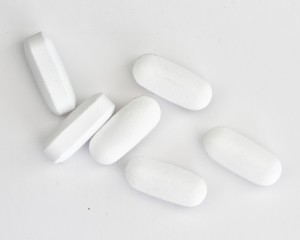 Five teens at a Maryland high school were recently found to have overdosed on prescription drugs during the school day. The Frederick County Sheriff’s Department responded to calls from Oakdale High School in Ijamsville and sent four female students to the hospital. The fifth was released to her parents. The incident is representative of the problem of prescription drugs and heroin in Maryland and across the country. Young people are abusing these drugs in record numbers and are facing the consequences.
Five teens at a Maryland high school were recently found to have overdosed on prescription drugs during the school day. The Frederick County Sheriff’s Department responded to calls from Oakdale High School in Ijamsville and sent four female students to the hospital. The fifth was released to her parents. The incident is representative of the problem of prescription drugs and heroin in Maryland and across the country. Young people are abusing these drugs in record numbers and are facing the consequences.
Breaking the Cycle of Adderall Abuse
Category: News Tags:
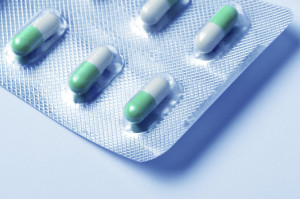 Adderall is the brand name of a medication that is usually prescribed for ADHD or narcolepsy. It is also sometimes prescribed for severe depression. This medication is a combination of two stimulants, and addiction to Adderall is becoming more and more common.
Adderall is the brand name of a medication that is usually prescribed for ADHD or narcolepsy. It is also sometimes prescribed for severe depression. This medication is a combination of two stimulants, and addiction to Adderall is becoming more and more common.
Friends, Family Chief Sources of Abused Prescription Stimulants
Category: News Tags: , Signs of Prescription Drug Abuse
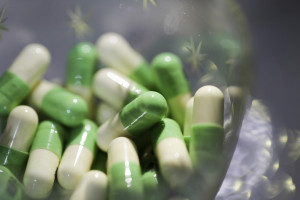 Relatives and friends are the most likely sources of the medications consumed during acts of prescription stimulant abuse, a team of American and Taiwanese researchers has found.
Relatives and friends are the most likely sources of the medications consumed during acts of prescription stimulant abuse, a team of American and Taiwanese researchers has found.
Prescription stimulants are a diverse group of medications commonly used in the treatment of conditions such as attention-deficit hyperactivity disorder, the sleep-wake disorder narcolepsy and dangerously severe obesity. All told, these medications rank highly among the most widely abused prescription substances in the U.S. In a study published in October 2014 in the journal Drug and Alcohol Dependence, researchers used data from an annual, nationwide U.S. project called the National Survey on Drug Use and Health to determine the most common sources for the medications consumed during acts of prescription stimulant abuse.
Over 10 Percent of Teens in ER Abused Prescription Drugs, Survey Finds
Category: News Tags: , teen prescription drug abuse
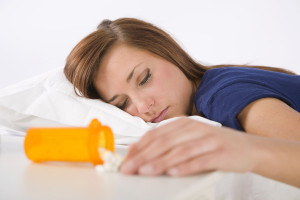 In a study of emergency room visits by teens and young adults, researchers at the University of Michigan found that more than 10 percent of them had abused an opioid or sedative medication.
In a study of emergency room visits by teens and young adults, researchers at the University of Michigan found that more than 10 percent of them had abused an opioid or sedative medication.
Prescription Medications Drugs of Choice for Younger Teens
Category: News Tags: , teen prescription drug abuse
 Young adolescents ages 12 and 13 abuse drugs much less frequently than older teenagers. However, when these young adolescents do abuse drugs, they are more likely to abuse prescription medications than any other type of drug.
Young adolescents ages 12 and 13 abuse drugs much less frequently than older teenagers. However, when these young adolescents do abuse drugs, they are more likely to abuse prescription medications than any other type of drug.
Peers, But Not Peer Pressure, Key to Prescription Drug Abuse
Category: News Tags: , Peer Pressure
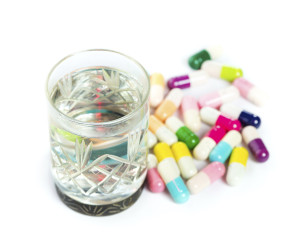 Peer pressure is the common term for the forces that directly or indirectly encourage shared patterns of thought and behavior in people who belong to the same social circle. Researchers and addiction specialists know that this type of pressure has a significant impact on whether a given person gets involved in problematic substance use. In a study presented in 2014 to the American Sociological Association, researchers from Purdue University explored the impact that peer pressure has on the odds that young adults will partake in prescription drug abuse.
Peer pressure is the common term for the forces that directly or indirectly encourage shared patterns of thought and behavior in people who belong to the same social circle. Researchers and addiction specialists know that this type of pressure has a significant impact on whether a given person gets involved in problematic substance use. In a study presented in 2014 to the American Sociological Association, researchers from Purdue University explored the impact that peer pressure has on the odds that young adults will partake in prescription drug abuse.
What Are the Current Trends in Teen Abuse of ADHD Stimulants?
Category: News Tags: , ADHD medication abuse
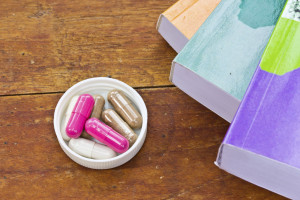 ADHD stimulants belong to a group of medications that ease the effects of attention-deficit/hyperactivity disorder by increasing the ability to focus, pay attention and stay calm. The two best-known forms of these medications are Adderall and Ritalin. As part of a larger survey on substance use trends among American teenagers, researchers from the University of Michigan looked at the number of teens using either one of these medications improperly in 2013. The researchers concluded that the rate of Ritalin and Adderall abuse among U.S. adolescents remained comparable to the rate reported in 2012.
ADHD stimulants belong to a group of medications that ease the effects of attention-deficit/hyperactivity disorder by increasing the ability to focus, pay attention and stay calm. The two best-known forms of these medications are Adderall and Ritalin. As part of a larger survey on substance use trends among American teenagers, researchers from the University of Michigan looked at the number of teens using either one of these medications improperly in 2013. The researchers concluded that the rate of Ritalin and Adderall abuse among U.S. adolescents remained comparable to the rate reported in 2012.
Signs of Drug Abuse in Teenagers
Category: News Tags: , teen prescription drug abuse
 When you are the parent of a teenager, you learn to expect the unexpected. As a group, teenagers are unpredictable, moody and sometimes unpleasant. Your teen isn’t a child anymore, but he or she isn’t an adult either. You may have power struggles, and you probably spend a lot of time worrying about whether you’re handling your teen’s rebellious nature the right way.
When you are the parent of a teenager, you learn to expect the unexpected. As a group, teenagers are unpredictable, moody and sometimes unpleasant. Your teen isn’t a child anymore, but he or she isn’t an adult either. You may have power struggles, and you probably spend a lot of time worrying about whether you’re handling your teen’s rebellious nature the right way.
Which Young Adults Tend to Become Prescription Medication Sellers?
Category: News Tags: , teen prescription drug abuse
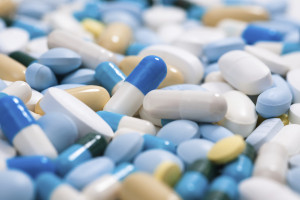 In America, small but substantial minorities of younger and older adults abuse some sort of prescription medication. Researchers know quite a bit about the people most likely fall into this pattern of drug abuse, but they generally know much less about the people most likely to sell the prescription medications abused by others. In a study scheduled for publication in 2014 in the journal Drug and Alcohol Dependence, researchers from several U.S. institutions examined the factors that make any given young adult more likely to illegally/illicitly sell prescription drugs.
In America, small but substantial minorities of younger and older adults abuse some sort of prescription medication. Researchers know quite a bit about the people most likely fall into this pattern of drug abuse, but they generally know much less about the people most likely to sell the prescription medications abused by others. In a study scheduled for publication in 2014 in the journal Drug and Alcohol Dependence, researchers from several U.S. institutions examined the factors that make any given young adult more likely to illegally/illicitly sell prescription drugs.
Students Turn to Adderall as Study Aid
Category: News Tags: , ADHD medication abuse
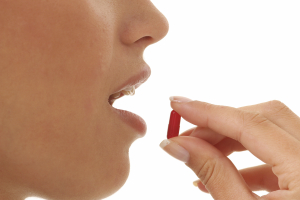 Adderall is the brand name for a prescription medication, which is a mix of drugs called amphetamine and dextroamphetamine. It is a stimulant commonly prescribed to treat ADHD, but may also treat narcolepsy. As a stimulant, Adderall is susceptible to abuse. With many cases of diagnosed ADHD, Adderall is easy to access for young people who want to abuse it. What may be surprising to some is that many students, both in high school and college, are not abusing Adderall for fun, but rather as a study aid. The potential consequences of this abuse are serious.
Adderall is the brand name for a prescription medication, which is a mix of drugs called amphetamine and dextroamphetamine. It is a stimulant commonly prescribed to treat ADHD, but may also treat narcolepsy. As a stimulant, Adderall is susceptible to abuse. With many cases of diagnosed ADHD, Adderall is easy to access for young people who want to abuse it. What may be surprising to some is that many students, both in high school and college, are not abusing Adderall for fun, but rather as a study aid. The potential consequences of this abuse are serious.